Does Vinegar Kill Grass Roots? What You Need To Know
-
Pete Ortiz
- Last updated:
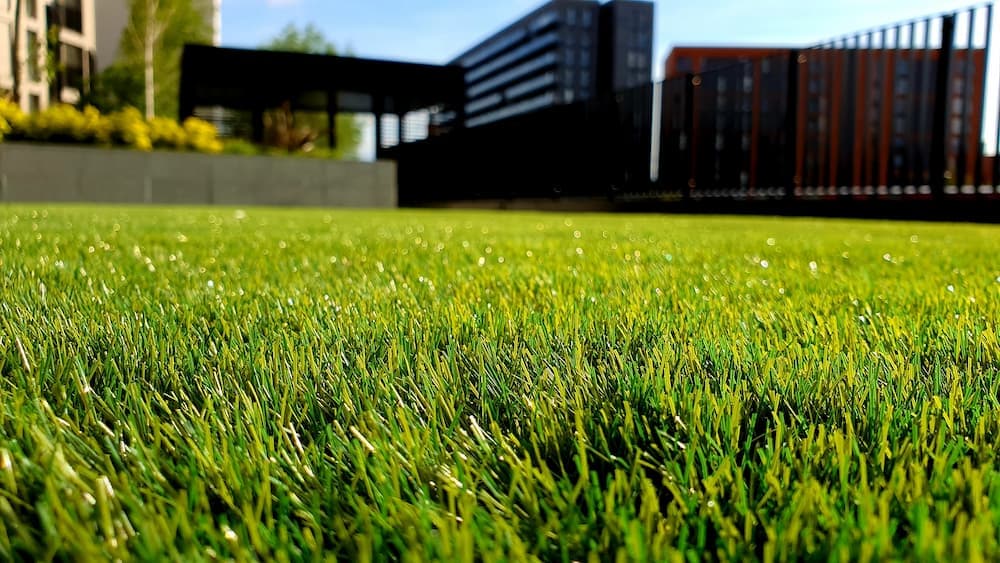
It’s funny how it took people this long to realize that conventional herbicides are not only dangerous to the environment but have the ability to compromise our immune systems as well. Gardeners are now scouring the internet for more information on alternatives that are a lot safer and harmless—vinegar being the most popular of them all.
Truth be told, vinegar is an incredible weed killer, if not herbicide. However, from what we’ve observed, it’s not powerful enough to kill the roots of any grass species. It will most certainly burn their blades, but not damage the roots.
To understand the specifics of how vinegar works, we’ll kick this off by describing the chemical composition of this versatile DIY substance.
What is Vinegar?
We’ve always seen vinegar as a special kind of aqueous solution because not many a time will you find a substance that can serve as both a household cleaner and a cooking ingredient.
Back in 5000 B.C.E1, the Babylonians drank vinegar so as to boost their strength, or as medicine. But some of them preferred using it as a condiment and preservative. Rumor has it that they accidently discovered this solution when they forgot to check on the status of the wine stored in their cellars for several months.
You can make vinegar at home by combining acetic acid (CH3COOH) with water (H2O). Of course, the ones that are commercially produced have several other small amounts of chemicals added in there, such as polyphenolic compounds, amino acids, mineral salts, and vitamins. Vinegar gets its trademark pungent odor from the acetic acid.
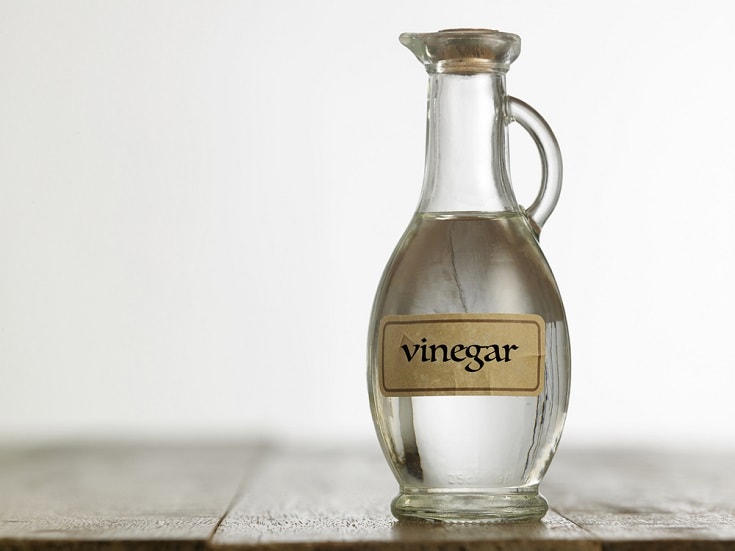
What’s The Percentage of Acetic Acid in Vinegar?
The percentage of acetic acid in household vinegar (5%) is always lower than that of industrial vinegar (20%), for obvious reasons—strong cleaning agents are a requisite for industrial applications, thus the higher percentage. This is also the reason why industrial vinegar has a stronger pungent odor.
We’d steer clear of industrial vinegar of any kind. Lest you want to suffer burns, when it inadvertently comes into contact with your skin or eyes. Experts have reiterated on several occasions that vinegar is strong enough to blind anyone who plays around with it.
How Does Vinegar Affect Grass?
The acetic acid in vinegar is often powerful enough to dissolve the grass’ cell membranes. And the membrane is what holds all the fluids that the plant needs in place. Once it’s gone, that liquid gradually evaporates, leaving that specific section of the plant severely dehydrated. Areas that haven’t been touched by vinegar will look normal, but if a significant fraction of the plant was affected, it will stop growth or die of chronic water deficiency.
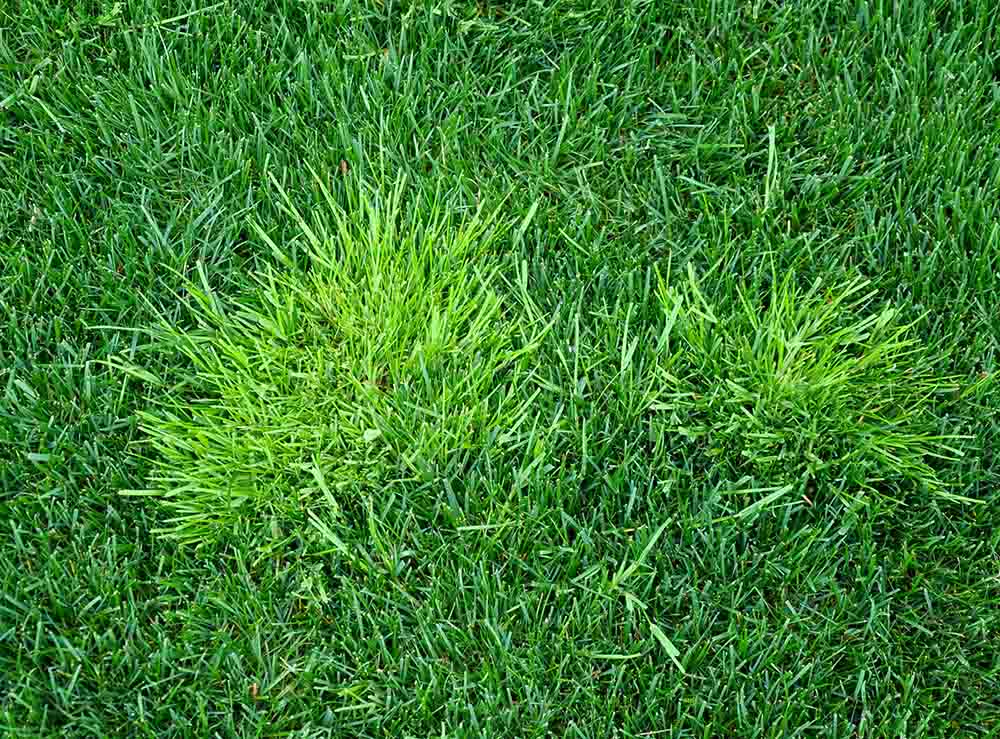
Are Grass Roots Susceptible to Vinegar?
Vinegar usually becomes inert the minute it comes into contact with soil. It somehow reacts with the different minerals found in soil, hence breaking down into elements that are harmless to roots. It can’t even hurt the soil microbes if it wanted to. So, if you’re wondering how grass manages to grow back after being sprayed with vinegar, that’s why.
But don’t pull the same stunt on their seedlings, especially if they’re less than 2 weeks old. For the grass to grow back, the roots have to be well-established—and seedlings don’t usually have well-developed roots.
Can vinegar damage the seeds? Nope. Grass varieties normally produce seeds that have a very hard coating. Too hard for the acetic acid in vinegar to erode.
How Do You Treat an Accidental Vinegar Spill on Grass?
If you don’t want to see any hideous yellow patch, immediately wash it off using clean water. But you have to act fast because it will start dissolving those membranes instantaneously. Pour an entire bucket of water around that area to completely dilute it and then wait and see. If you don’t see any yellow patches forming after 2–3 days, you successfully protected your grass from the acidic injury.
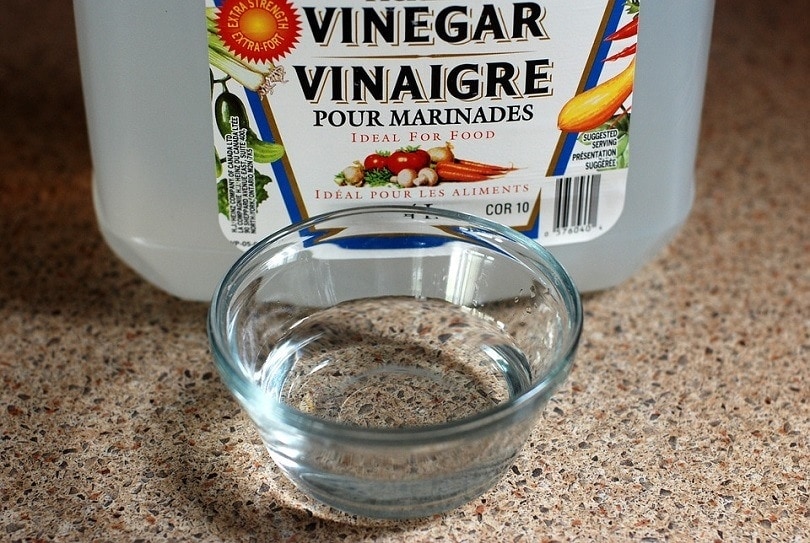
How Can You Use Vinegar to Kill Weeds?
You’re obligated to take good care of the grass on your lawn, as a lawn owner. It’s upon you to learn how you can get rid of all the weed species invading your compound, without damaging the grass or plants growing next to them. We’ve always felt that the best places to apply vinegar are in between the crevices found in driveways or pavements. Weeds love inhabiting such areas, hence making it easy to get to them.
It’s also important to note that the best time to apply vinegar is when the weather is warm and sunny. Don’t apply any of it if there’s wind, or if it’s about to rain. The water will dilute the solution, thus rendering it ineffective, and the wind will spread it to the nearby grass.
In cases where the weeds are too close to the grass, you can use a brush instead of a spray can. The brush will make it easier for you to only cover the weed’s foliage, and not that of grass. Just be cautious not to get some of it on your skin or eyes. Always wear gloves, protective eyewear, an apron, and a mask.
What’s The Difference Between White Vinegar and Apple Cider Vinegar?
As the name suggests, apple cider vinegar is a product made using apples. After the juice has been extracted from the fruit, it goes through a two-step fermentation process. With time, the sugars in it are converted to alcohol, which is then converted to vinegar. The final step entails filtration and pasteurization.
On the flipside, white vinegar is produced using corn and water. The two will help create a vodka-like grain alcohol, which will be fed to oxygen so as to support the growth of bacteria (fermentation). The end-product is acetic acid, also known as the chief ingredient of vinegar.
Side note: Vinegar can be produced using any type of alcohol. It doesn’t matter if it’s beer, cider, or wine, as long as the substance has the chemical constitution of alcohol. However, if you want to get the white vinegar’s neutral profile, you’ll have no other option but to use grain alcohol.
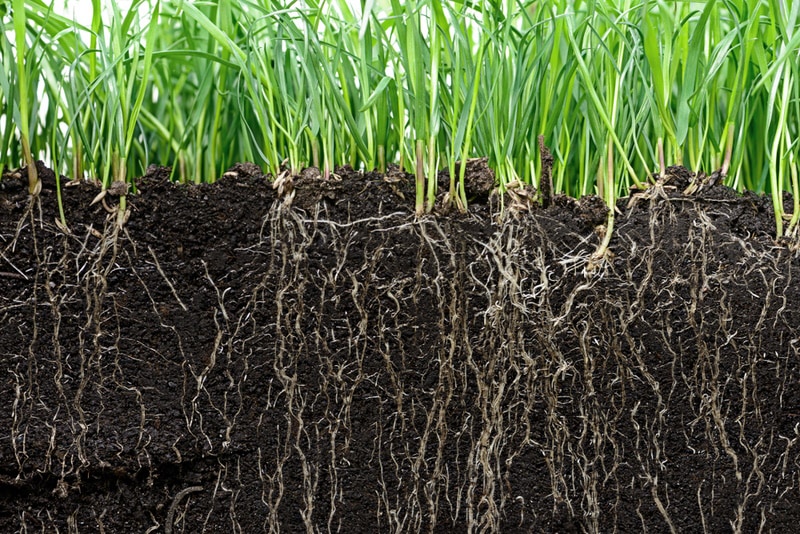
Final Words
Vinegar doesn’t kill grass roots. The solution will be rendered inert the minute it gets to the soil. If you’d like to kill the roots without poisoning your soil, you’ll have to apply other methods. We don’t recommend the use of chemical herbicides, as most of them are harmful to the environment. Just cover that whole area with a black plastic on a hot summer day, and the heat generated below should be enough to kill the roots.
Featured Image Credit: Petar Tonchev, Unsplash
Contents


